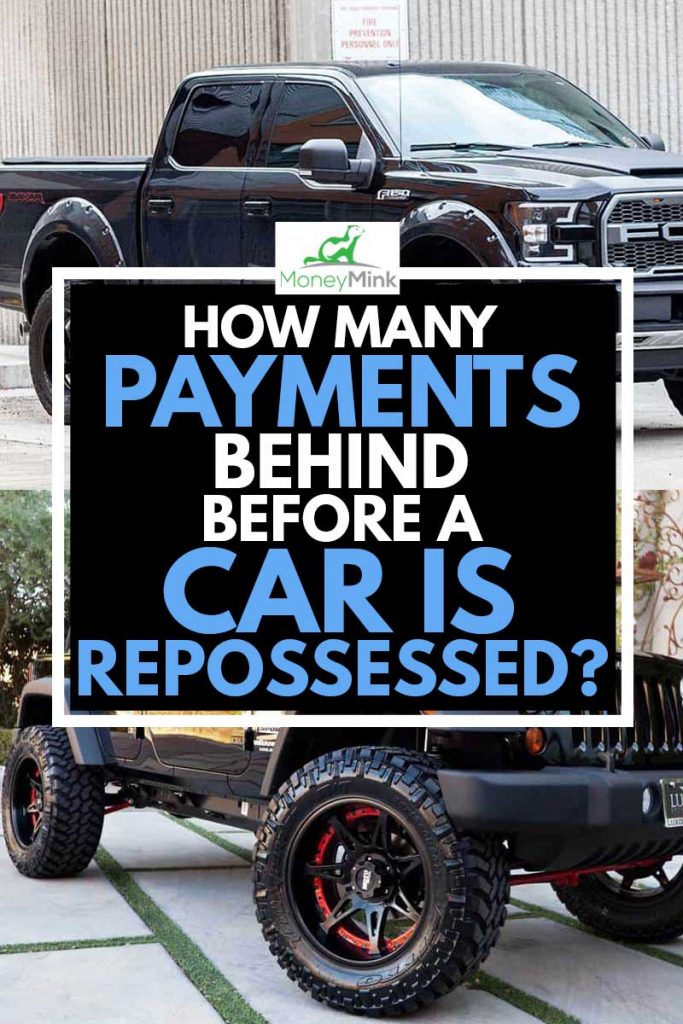Keeping up with car payments can be a daunting task now and then. But being behind on car payments poses a significant risk. The risk of your car being repossessed. We've researched how many payments you can miss before the repossession process begins.
Every state has its repossession laws, but generally, your bank or lender will begin the repossession process after three or more missed payments. It's considered a missed payment if you go past 30 days before making a payment.

Continue reading to understand the risks associated with missed car payments.
How Does the Repo Process Work?
Car repossession is when your bank or lender takes away your car for not making payments on it.
As mentioned, the repossession process usually begins after the third missed payment. However, your lender is legally able to repossess your car as soon as your first late payment day.
The bank or lender begins the process by sending a third-party repossession agent, also called the "repo man." This agent will come to your home, work, or any other provided address to find your car. It's common for those in debt to try to "hide" it by parking far enough from the address provided but close enough to access it still. Repo men know people do this and easily find the car within a few minutes. Do not attempt to hide your vehicle. According to Nolo, it'll cause you to lose the right to get back the car, and it's illegal in some states.
Once they find your car, the repo company will wait until it's left unattended. Then the repossessor will do one of two things: use a master key or hotwire the car to drive it away or call a tow truck to have it towed away to an impound lot.
The car is held at that impound lot for 30 days usually. That's your timeframe to catch up with your car payments. Failure to bring your payments current gives the ownership rights back to the lender. They'll then attempt to sell off your car.
Whatever income is made on that sale will be put towards the amount owed. This means you still will owe money even after the car is gone; this owed money is called a deficiency. Note that the lender will try to sell it at the highest price possible; they can't just take your car, give it away, and still expect the remaining balance.
Can My Car Be Repossessed if I Make Partial Payments?
Making just a partial payment still means there's a balance due on your account. Because that balance wouldn't have been paid in full, your car could still be repossessed. That doesn't mean that you shouldn't send in that partial payment, however. According to the Consumer Justice Center, an accepted partial payment waives the lender's rights to repossession. That will at least buy you a little extra time.
Do you Get a Notice Before a Repo?
Once you reach an excessive amount of missed payments, the lender can send the repossession agent without warning. That being said, you are required to get the following notices before and during the repossession process.
Missed Payment Notifications
The first time you miss a payment, you'll get calls and letters in the mail attempting to collect the missed balance. Communication is critical in dire situations like this. Your lender might try to work with you in your circumstances. They don't gain anything from repossessions; LendEdu explains that it costs lenders $7000 to repossess a car.
Acceleration Notice
In some loan or lease agreements, there's an "acceleration clause." This gives the lender the right to demand the entire loan balance once you miss a payment. It's illegal for lenders to accelerate loans without notice in some states. Because of this, lenders will send you an intent of loan acceleration.
Opportunity to Cure
After your car is repossessed, lenders in most states are required to give you a notice explaining what must be paid to retrieve the vehicle. It will have the entire balance owed before it's put on sale.
Deficiency Notice
After the car has been sold, lenders send out a deficiency notice. Remember how we explained that a deficiency is the difference between the balance owed and the profits from the sale of the car? You will receive that remaining balance in this notice.
What Should I Do if I Can't Afford my Car Payments?
If you feel like your situation is too dire to catch up on your balance, consider these options before the repossession process begins.
Refinance
In the short run, refinancing to a longer loan term reduces the payments. It also eliminates the previous remaining balance, giving you a fresh start on your agreement. In the long run, this will lead to a higher overall loan balance or a longer time to pay it off in full.
Sell the Car Yourself
This one is a bit difficult due to only having a limited timeframe to do so. But if you can find a buyer, the selling price can be used to pay off the balance. Note that the lender can refuse this option for any reason. If you still have a remaining balance after this, talk to your lender about negotiating the remainder.
Ask About Temporary Assistance
Not all lenders will do this, but loan extensions allow you to skip payments and move them to the end of your loan term. Your repayment term will be longer, but your loan would become current.
Conclusion
We hope that this information prepares you for what could happen if you're a few payments behind and at risk of repossession. If your financial situation is temporary, consider paying off your car loan early once you get your money in order.



